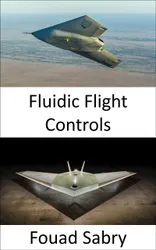What Is Adaptive Compliant Wing
A wing known as an adaptive compliant wing is one that is pliable enough to allow for some features of its form to be altered while the aircraft is in motion. The advantages of having flexible wings are many. The operation of conventional flight control devices often involves the use of hinges, which may result in interruptions to the airflow, vortices, and even, in certain instances, separation of the airflow. These factors add to the drag that the airplane experiences, which in turn leads to decreased efficiency and increased expenses for fuel. Aerofoils that are flexible have the ability to alter aerodynamic forces while causing less disturbances to the flow of air. This results in reduced aerodynamic drag, which leads to increased fuel efficiency.
How You Will Benefit
(I) Insights, and validations about the following topics:
Chapter 1: Adaptive compliant wing
Chapter 2: Wing
Chapter 3: Aeroelasticity
Chapter 4: Airfoil
Chapter 5: Elevon
Chapter 6: Aircraft flight control system
Chapter 7: Elevator (aeronautics)
Chapter 8: Flap (aeronautics)
Chapter 9: Wing warping
Chapter 10: Flaperon
Chapter 11: Spoileron
Chapter 12: Variable-camber wing
Chapter 13: Camber (aerodynamics)
Chapter 14: Boeing X-53 Active Aeroelastic Wing
Chapter 15: Parker variable wing
Chapter 16: Wingsail
Chapter 17: Wing configuration
Chapter 18: Leading-edge slat
Chapter 19: Flexible wing
Chapter 20: Adaptive compliant trailing edge
Chapter 21: General Dynamics-Boeing AFTI/F-111A Aardvark
(II) Answering the public top questions about adaptive compliant wing.
(III) Real world examples for the usage of adaptive compliant wing in many fields.
(IV) 17 appendices to explain, briefly, 266 emerging technologies in each industry to have 360-degree full understanding of adaptive compliant wing' technologies.
Who This Book Is For
Professionals, undergraduate and graduate students, enthusiasts, hobbyists, and those who want to go beyond basic knowledge or information for any kind of adaptive compliant wing.

























